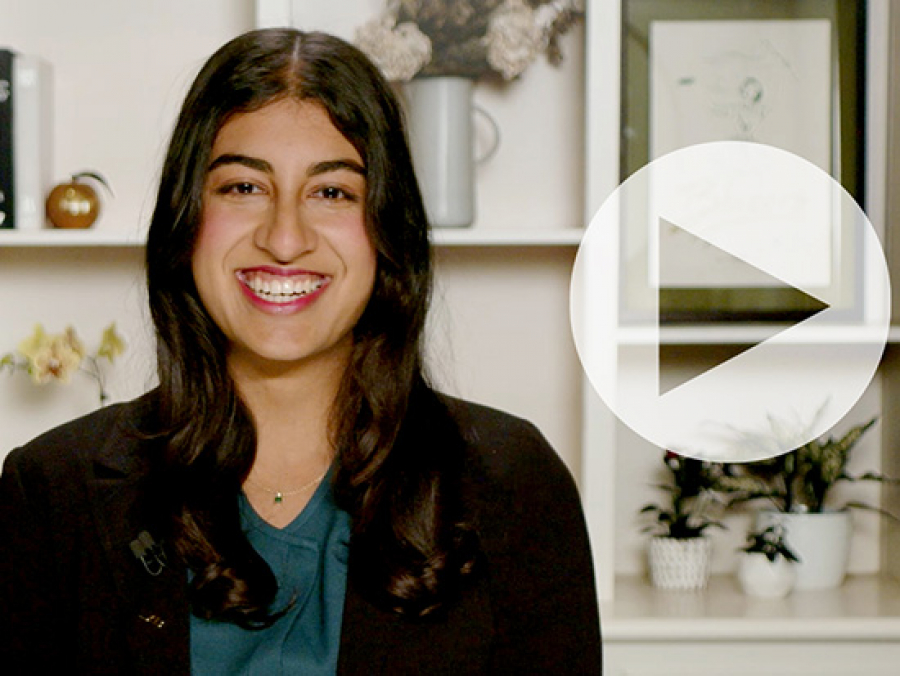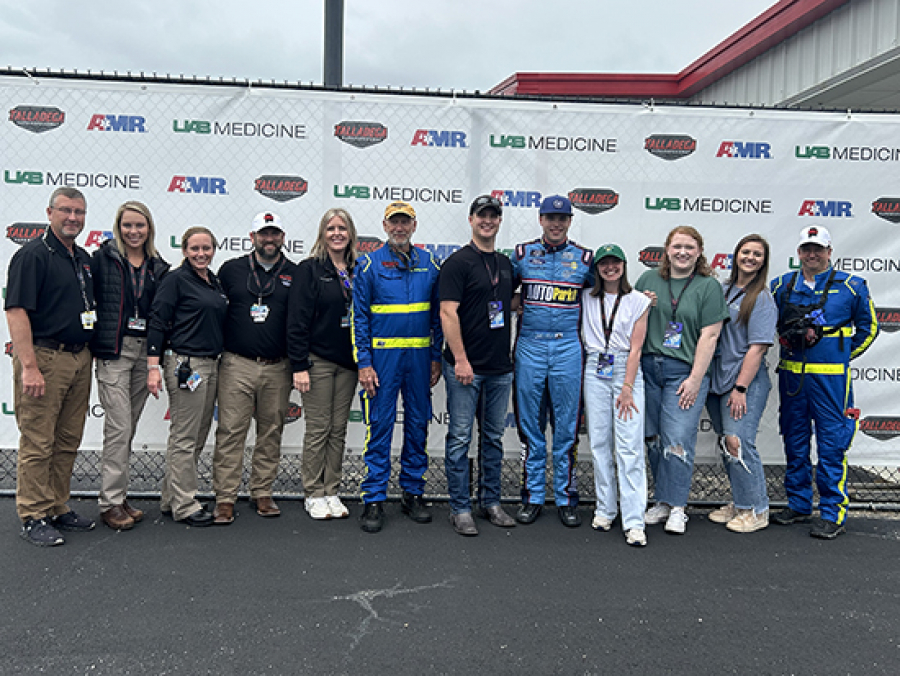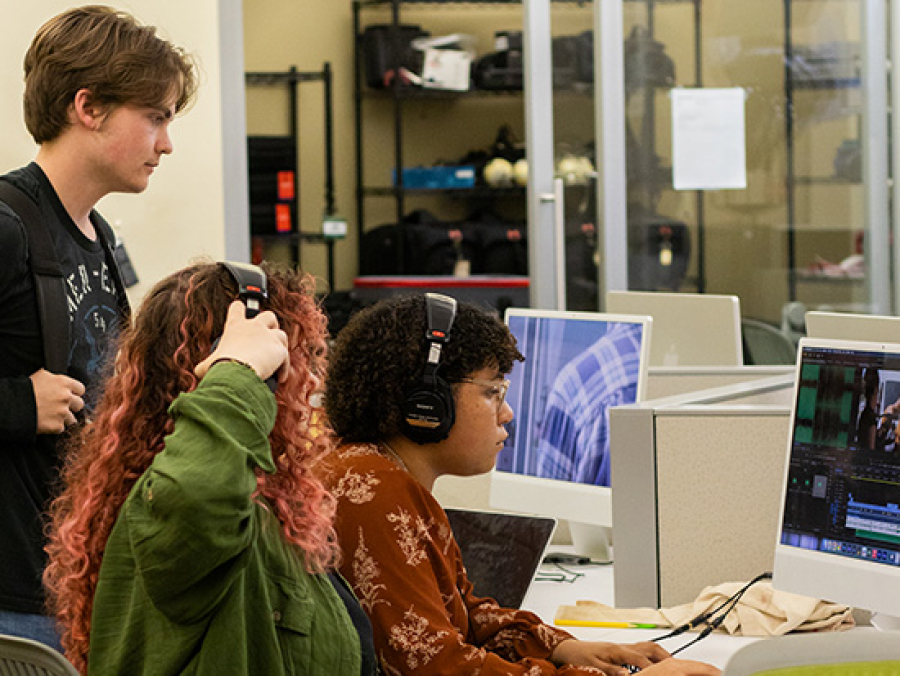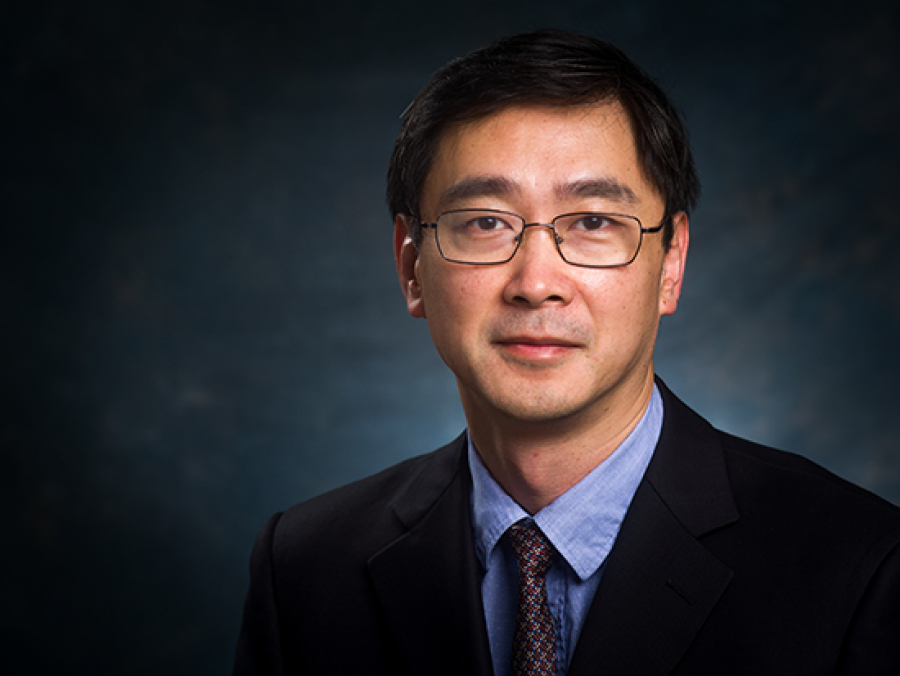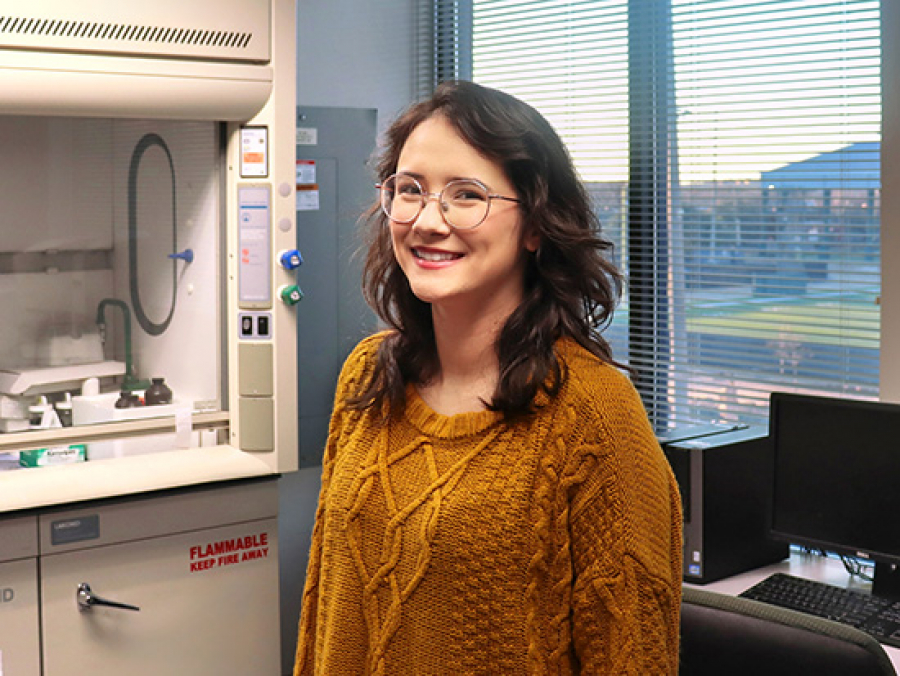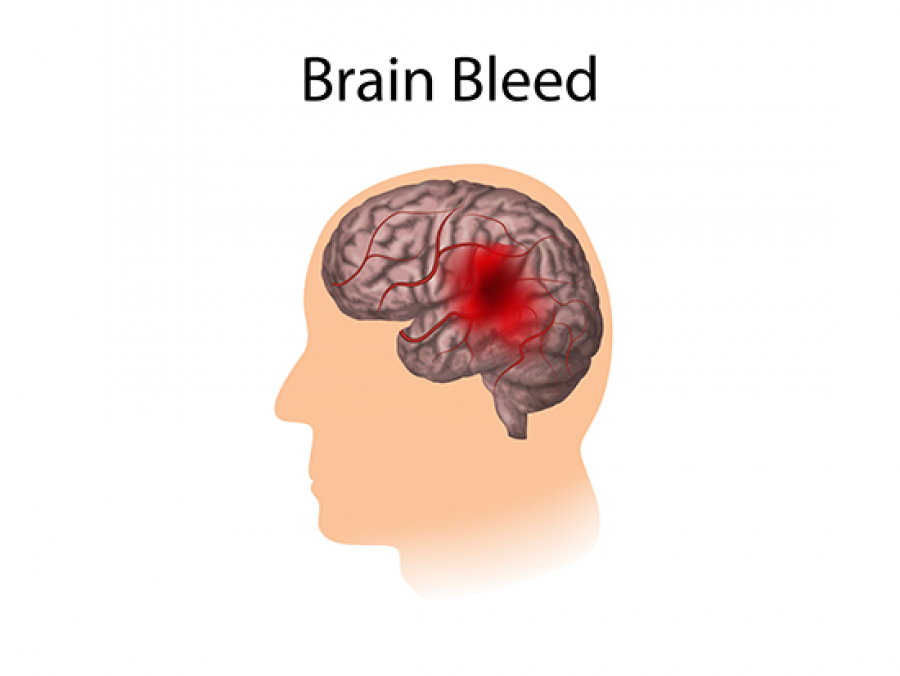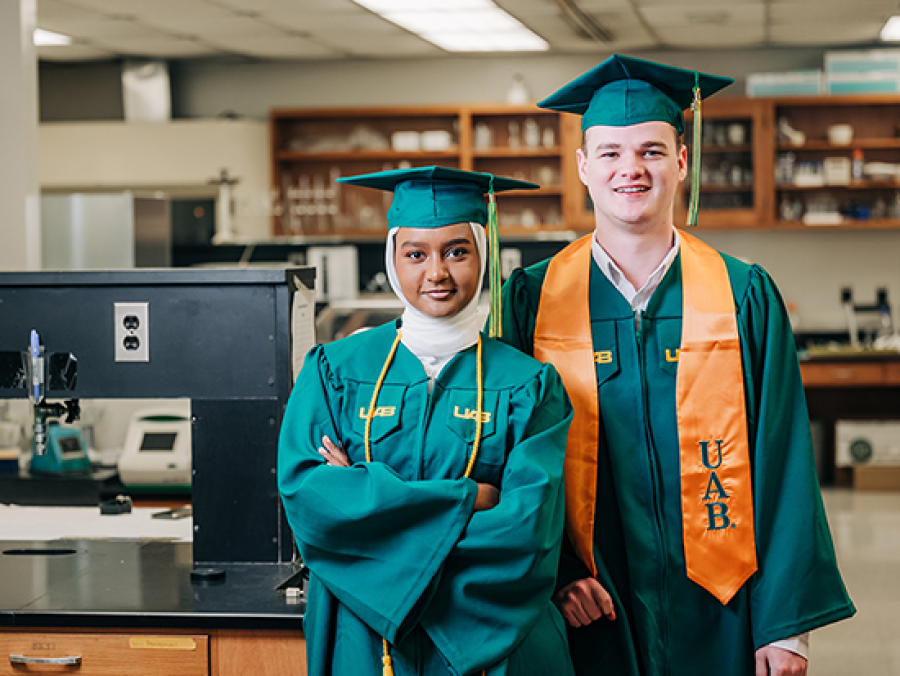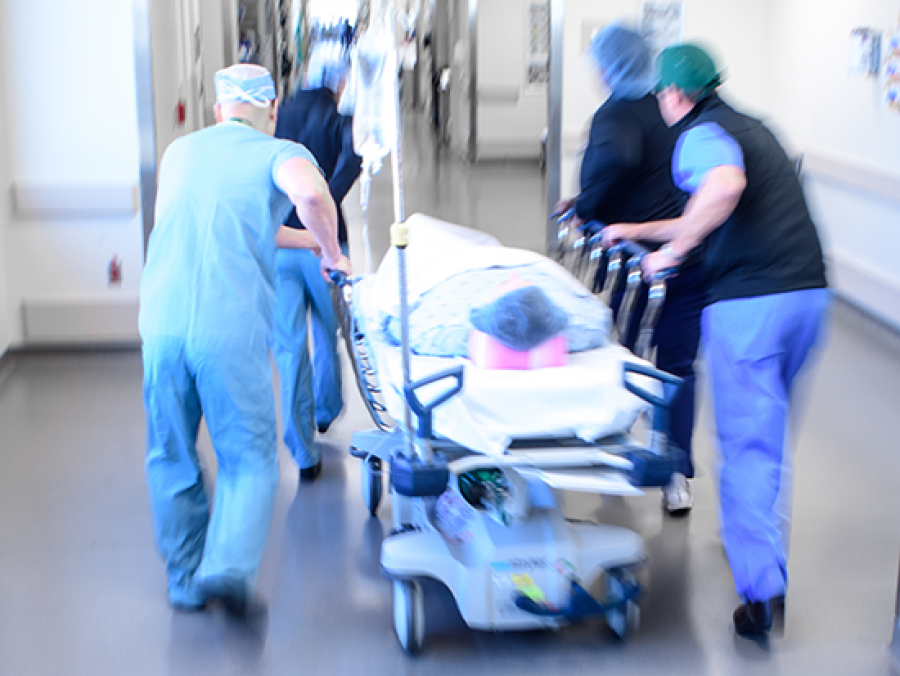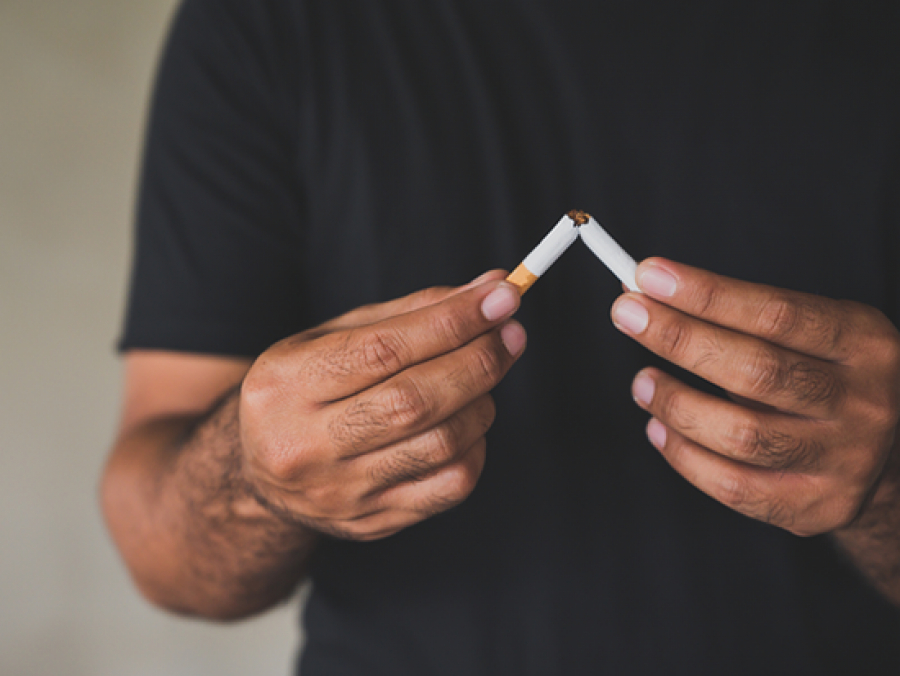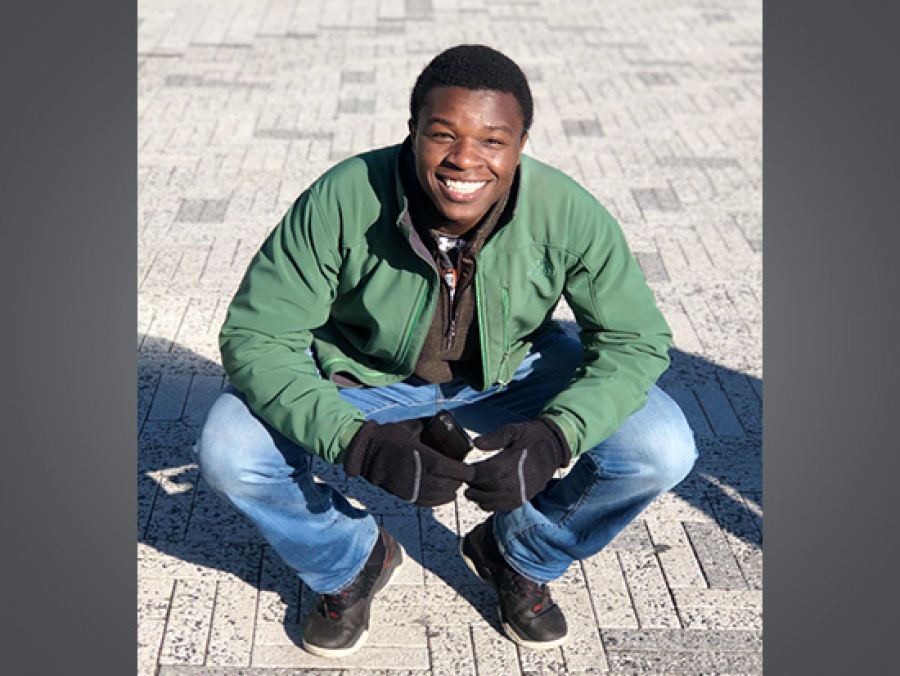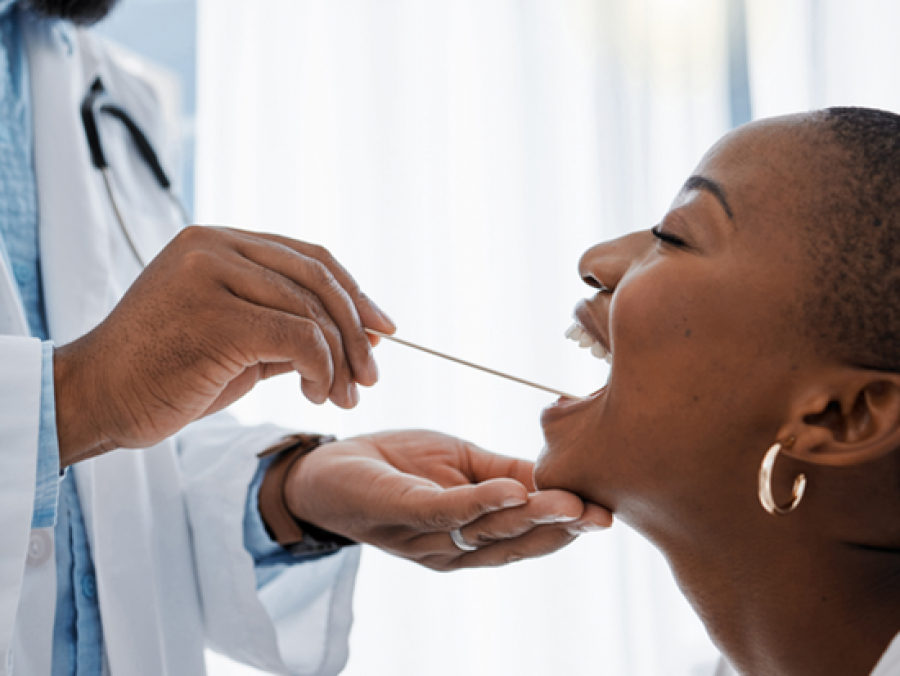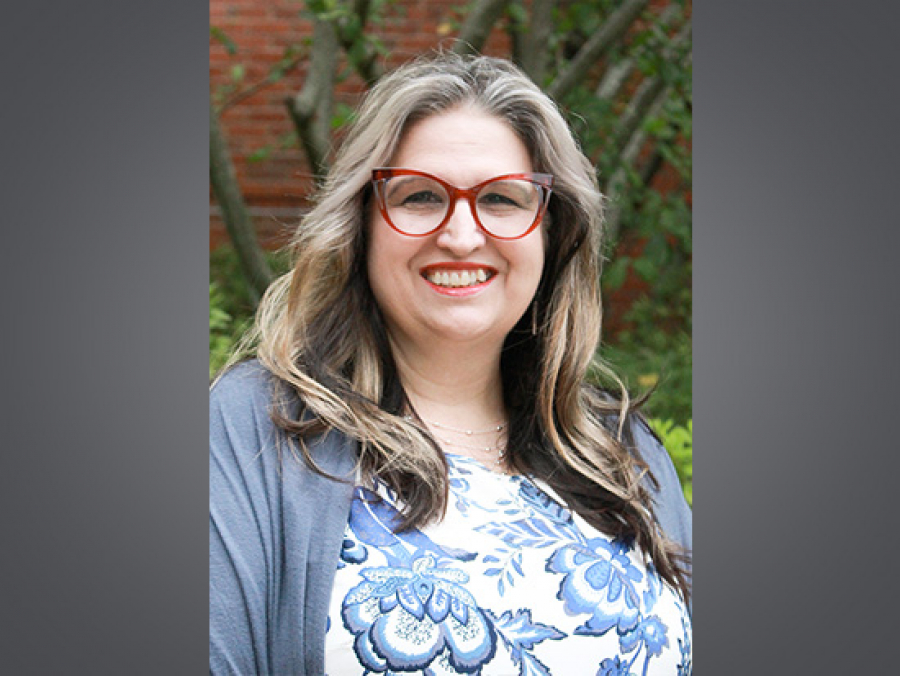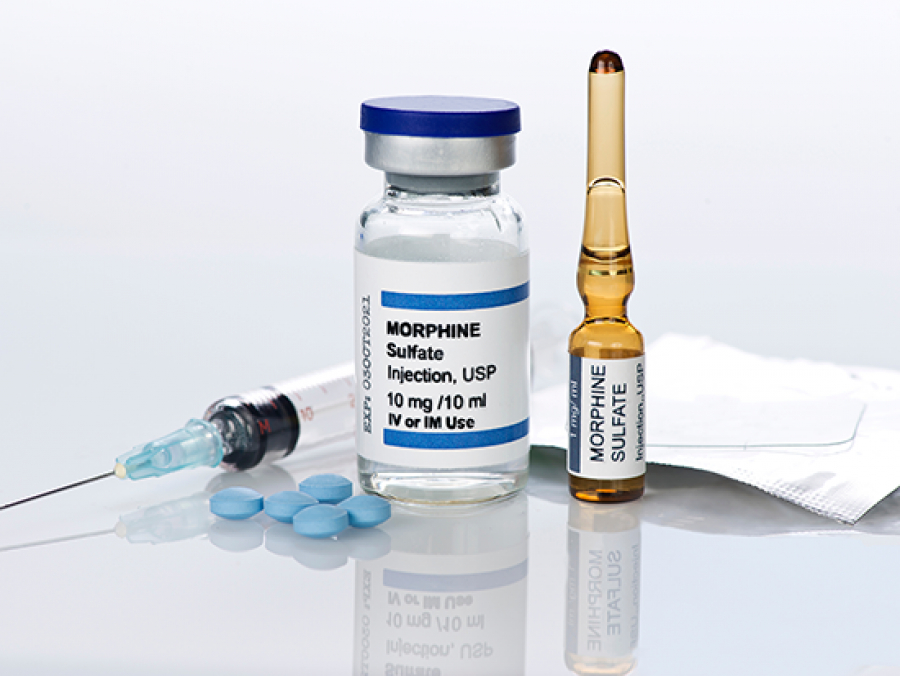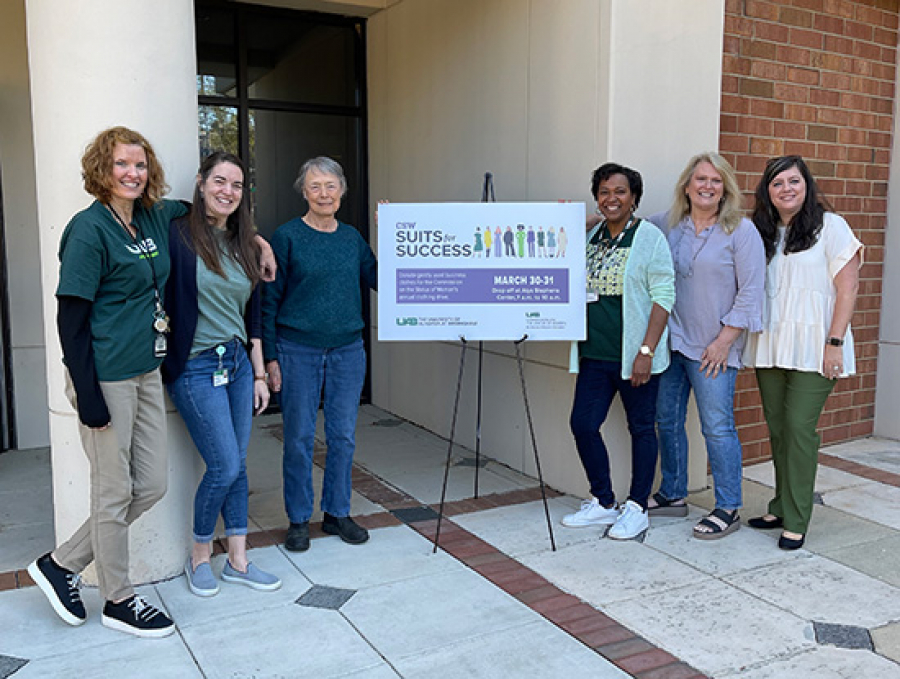Latest News
New research from the UAB Collat School of Business emphasizes the importance of aligning social media skills development with industry expectations, recognizing the value of practical experience through client projects.
Moolchandani is also a DJ, which is not a mere hobby but a commitment that complements her academic pursuits in computer science as she blends her passion for both technology and music through this role.
Blaine Perkins honored his care team from UAB that treated him after his wreck during the 2023 race at Talladega Superspeedway.
UAB Media Studies students learn how to make documentary films focusing on communities and issues they care about in a semester.
With this collaborative effort, the profile of UAB within biomedical data science and future data-driven medicine will be significantly raised on a national stage.
Muhammad Ali Abdullah is graduating with two degrees, profound research and clinical experience, and memories to cherish for a lifetime; he will be returning to UAB this July as a medical student.
This semester, at least 2,963 students are eligible to graduate, and more than 1,871 students are expected to walk in the three ceremonies in Bartow Arena.
Hendrix reflects on her time in the forensic science program, she calls attention to the close-knit community that exists between the students and the faculty.
The study will examine a protein that may help slow bleeding in the brain when given within a two-hour window following the first signs of hemorrhage.
The UAB Center for Community Outreach Development RACE21 program has equipped seniors James Walts and Sarah Elimam with years of lab and youth outreach experience to become well-rounded researchers of the future.
Sumedha Bobba has been a picture-perfect student since beginning her collegiate career during the COVID-19 pandemic. How did adjusting to a new way of life impact her approach toward her views of community and success?
In addition to providing excellent trauma care, UAB surgeons continue to establish innovative programs to better improve trauma care in Alabama.
Quitting smoking can provide a plethora of health benefits, including better breathing, more energy, and an improved sense of taste and smell, within just a few days.
The collected glasses will be reused by students in Latin America to watch the eclipse.
Two Alabama women with the same one-in-a-million pregnancy deliver healthy “twins” at UAB Hospital less than two months apart.
The Goldwater Program received 1,353 nominations from 446 institutions this year, and the winners will receive a scholarship covering tuition, housing, fees and books.
Academics and dance have a lot in common: Kendall Baker brought her interests and passions together to earn two degrees while performing with the Alabama Ballet.
Willing Blazers who volunteer can lend a hand for projects like general cleanup, painting, yard work and more. Breakfast and lunch will be provided.
Healthcare Decisions Day is April 16, and UAB experts are providing recommendations for how to get started with advance care planning.
Heersink family establishes three endowed scholarships for health professions, optometry and pre-optometry students.
UAB elementary education major Matthew Norris says, after arriving in America, he had little knowledge of the new culture his life would be impacted by, let alone the educational system.
Screenings will take a few minutes to conduct and will include a check for lesions and lumps on the neck or in the mouth.
The annual race will be held Saturday, May 18, at Railroad Park. A virtual option will be offered this year.
Since 1946, the Fulbright Program has given more than 390,000 professionals of all backgrounds and fields the opportunity to study, teach and conduct research, exchange ideas, and contribute to finding solutions to shared international concerns.
Understanding the mechanisms underlying tolerance and hyperalgesia is essential to enhance morphine’s utility in chronic pain management.
The Social Work Partnership will bring together academicians, students, and social workers currently working in the field to inform best educational practices aligned with the field requirements.
UAB graduate student discovered an educational need for children’s books about how local African American heroes sprang to action.
Suits for Success supplies several tons of clothing not only to women but also to students and patients in need, empowering them to confidently avail employment opportunities and advance their careers.
National Donate Life Month celebrates the lifesaving gift of organ, eye and tissue donation that many give and receive.
The UAB neurosurgery team performed an emergency brain aspiration on Easton Fothergill after he was rushed to UAB Hospital with a large brain abscess.

